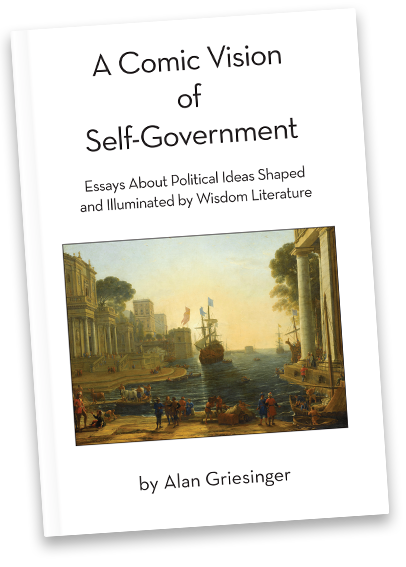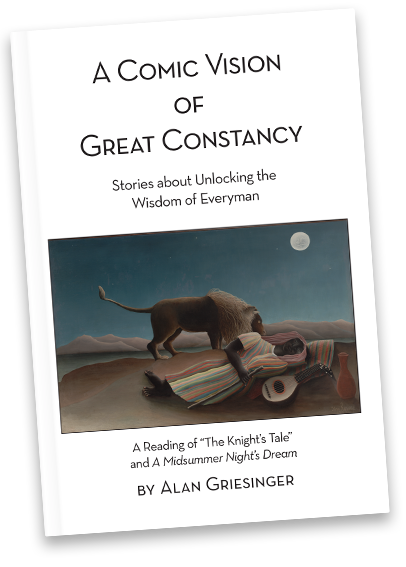A Comic Vision of Self-Government
by Alan Griesinger
Release Date: 3/7/2017
This volume is a companion piece to A Comic Vision of Great Constancy: Stories About Unlocking the Wisdom of Everyman. Instead of drawing conclusions about government from the lives of literary characters, A Comic Vision of Self-Government begins with the political ideas of Adam Smith, Edmund Burke, and Paul Johnson and relates them to narrative examples from wisdom literature. Both books credit Wisdom (why not personify her, as the Bible does) for helping a teacher to survive—in the classroom and as a husband and parent. Proverbs 8 begins, “Does Not Wisdom Call Out?” She does indeed, and it’s usually when we’re most in need of her. Comedy outlines a basic form of government. Because it’s non-sectarian, it brings people together. It also teaches us to recognize the voice of wisdom when it calls to us in the affairs of everyday life.
A Comic Vision of Great Constancy
by Alan Griesinger
Since ancient times people have recognized a pattern of experience and a quality of mind that attend the survival and the prospering of individuals, their families, and their nations. They called the linking of these things wisdom. In addition, the ancients observed that wisdom belongs to everyone born into this world as an innate potential. For that potential to be realized, though, they understood that human beings require a structure to help them recognize an experience as the voice of wisdom. A Comic Vision argues that comedy provides that structure and embodies that voice. There’s always a need for this. As Homer did before them, Chaucer and Shakespeare have constructed a poetic vehicle that functions like an ark for transporting its living cargo through perilous floods, and it’s as well-built and seaworthy as any we are like to know.

